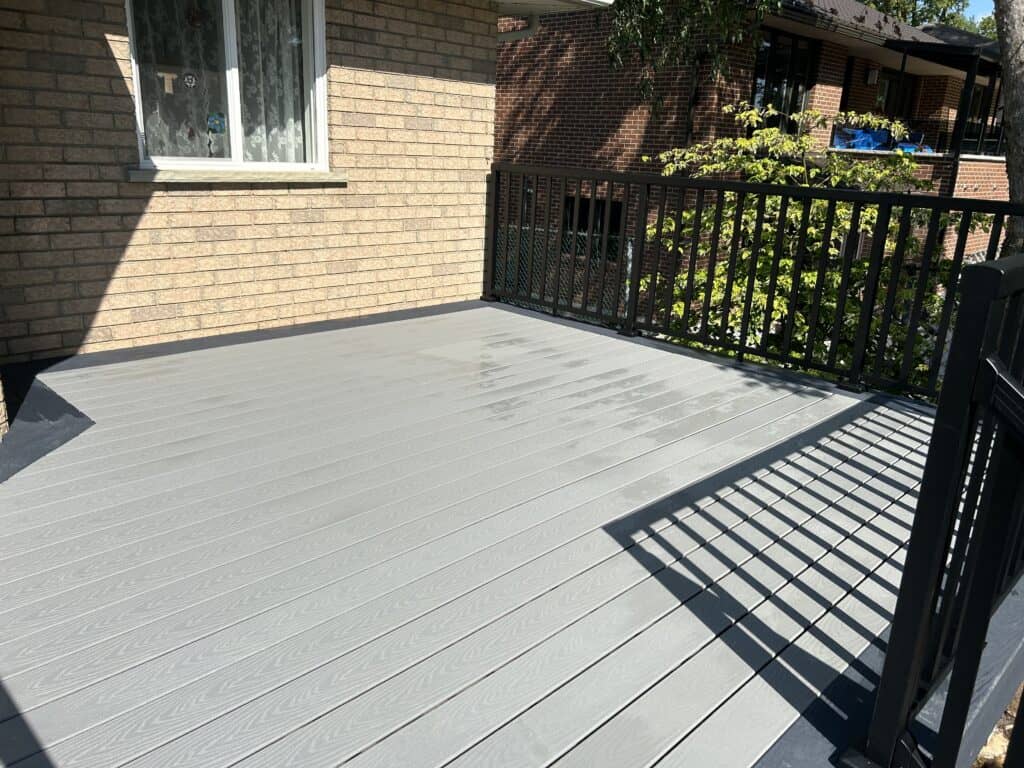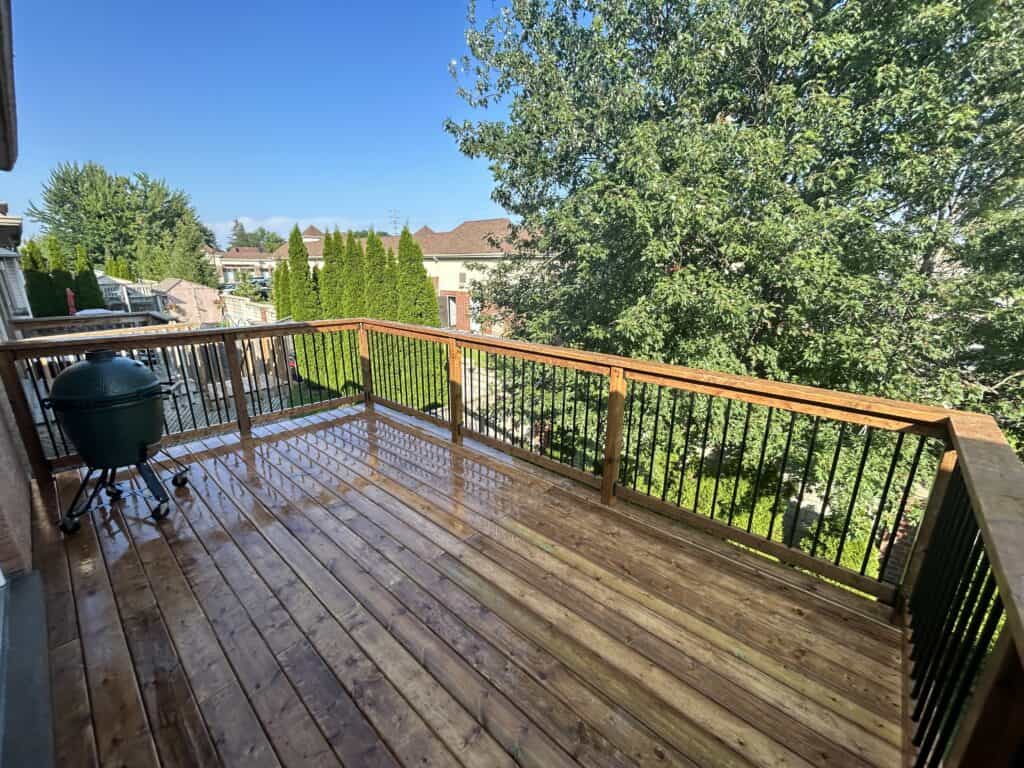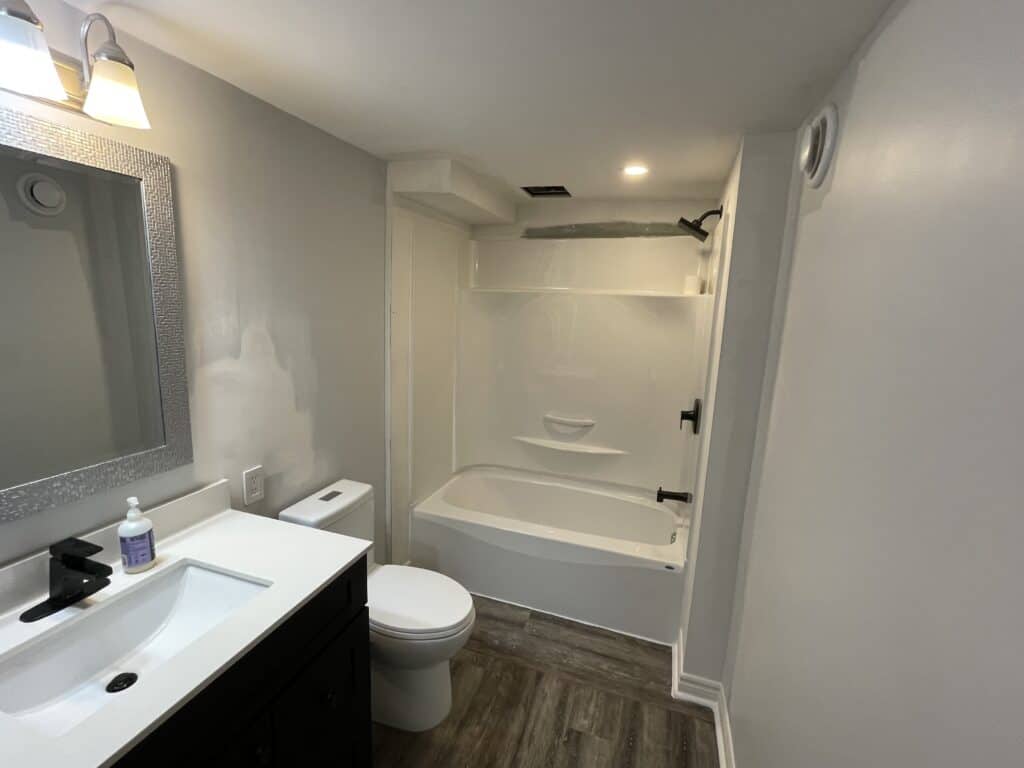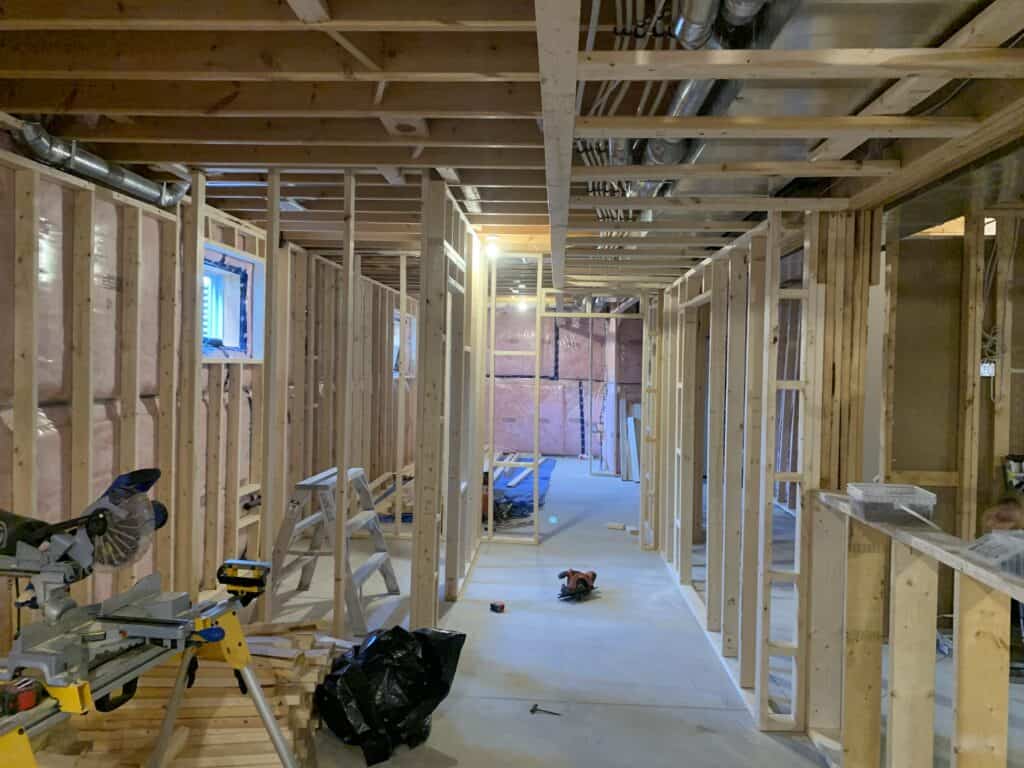When it comes to decking materials, composite decking has rapidly risen in popularity as an alternative to traditional wood. Made from a blend of recycled plastics and wood fibres, composite decking offers a range of benefits that appeal to homeowners looking for a low-maintenance and durable outdoor flooring solution. However, like any material, it also comes with its share of drawbacks. In this article, we’ll delve into the pros and cons of composite decking to help you make an informed decision for your outdoor space.
Pros of Composite Decking:
1. Low Maintenance:
Arguably the most significant advantage of composite decking is its low maintenance requirement. Unlike wood, composite boards don’t need staining, sealing, or refinishing to maintain their appearance and structural integrity. Occasional cleaning with soap and water is usually sufficient to keep them looking fresh.
2. Durability:
Composite decking is highly resistant to moisture, rot, insects, and UV rays. This durability means your deck is less likely to warp, crack, or splinter over time, ensuring a longer lifespan and less frequent repairs compared to wood.
3. Aesthetic Versatility:
Composite decking comes in a wide array of colors, styles, and textures, allowing you to achieve the look of natural wood or explore more modern designs. This versatility ensures that you can find a composite option that suits your preferred aesthetic.
4. Environmental Benefits:
Many composite decking brands incorporate recycled materials, contributing to a reduction in plastic waste. Additionally, because composites don’t require the same level of maintenance and replacement as wood, they can be considered a more environmentally friendly choice in the long run.
5. Resistance to Fading:
Composite decking is engineered to resist fading from prolonged sun exposure. This means that even after years of use, your deck’s color should remain consistent and vibrant.
6. Splinter-Free Surface:
The absence of wood fibers in composite decking makes it inherently splinter-free, creating a safer surface for barefoot walking and play.
Cons of Composite Decking:
1. Initial Cost:
Composite decking often comes with a higher upfront cost compared to traditional wood. While the initial investment might be higher, it’s important to consider the long-term savings due to reduced maintenance needs.
2. Heat Retention:
Some composite decking can retain more heat than wood, especially in direct sunlight. This can make the surface uncomfortably hot to walk on during very warm days. However, newer composite decking materials are being designed to address this issue.
3. Scratching and Staining:
While composite decking is generally resistant to stains and scratches, it’s not entirely impervious. Heavy or sharp objects can still leave marks on the surface, and certain substances like oil and grease can stain if not promptly cleaned.
4. Limited Natural Feel:
Despite its advancements in mimicking the appearance of wood, composite decking may lack the tactile and visual authenticity of real wood for those who value the natural look and feel.
5. Potential for Mold and Mildew:
In areas with high humidity or damp conditions, some composite decks might be prone to developing mold and mildew. Regular cleaning can help mitigate this issue.
6. Fading Over Time:
While composite decking is designed to resist fading, over many years, exposure to the elements can cause some color fading. The extent of fading can vary depending on the quality of the composite material.
In conclusion, composite decking offers a range of compelling benefits, including low maintenance, durability, and aesthetic versatility. While it comes with its fair share of drawbacks, such as the initial cost and potential for heat retention, many of these challenges are being actively addressed by manufacturers through innovation and technology. By carefully considering your priorities, budget, and preferences, you can make an informed choice about whether composite decking is the right fit for your outdoor space.




